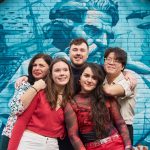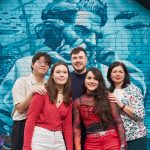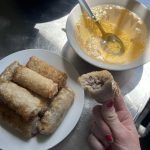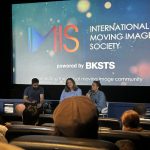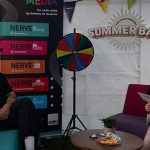 Produced by Guest blogger
Produced by Guest blogger
This is a guest blog by Alex Carey, a second-year BA (Hons) History student, about his experience at the model NATO (North Atlantic Treaty Organisation) simulation event.
Scott Keefer, our unit leader made us aware of the NATO simulations being held in London. I’ve been interested in geopolitics and international relations for a long time and seeing as I’d like to pursue a career in government or the military after my time at BU, I thought it might be a bit of fun and offer some useful insights.
The application included writing a letter explaining why I’d be a good candidate for the event; I mentioned my future aspirations, past experiences, and my general enthusiasm for the field. I felt really encouraged after finding out that I’d been selected, and it was marvellous to meet and get to know Shahidah and Josh, the excellent law and politics students who would be my fellow members of the Canadian delegation at the event.
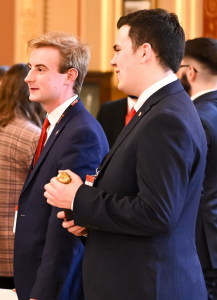 Being part of the military committee was excellent as this is where I felt I could bring the most knowledge and enthusiasm to the table. The other committee members were likewise very well informed and motivated to get their points across and make the event realistic. One aspect of the negotiation that became clear very quickly was how important it was to communicate and gain cooperation from the other delegates during the ‘unmoderated caucus’ sessions. These were when we could speak more plainly with others to formulate proposals for the committee to vote on.
Being part of the military committee was excellent as this is where I felt I could bring the most knowledge and enthusiasm to the table. The other committee members were likewise very well informed and motivated to get their points across and make the event realistic. One aspect of the negotiation that became clear very quickly was how important it was to communicate and gain cooperation from the other delegates during the ‘unmoderated caucus’ sessions. These were when we could speak more plainly with others to formulate proposals for the committee to vote on.
A high point was when I was able to spearhead an initiative where all the Scandinavian nations and Canada would cooperate more closely to sure up NATO’s northern flank to account for the large number of resources being donated to the Mediterranean disaster area.
The aim of our committee was to create a series of written proposals that we could present to the North Atlantic Council (another committee with ultimate say over the outcome of the event). These proposals were to represent what the military chiefs of staff of NATO member states would do to respond to the Mediterranean earthquake, be that troop redeployment, resource allocation or strategic planning to maintain the integrity of existing NATO commitments.
My main learning experience from the foreign and commonwealth officer is that diplomacy is hard. I was speaking to a member of the foreign office staff who had served as an advisor to previous UK foreign secretaries, and he was speaking about about how difficult it is to achieve consensus in international cooperation. This rang true with what our delegation had experienced during the event as while the North Atlantic Council did eventually agree on a response plan, the obstacles of communication issues and differing national priorities did often bring the likelihood of unanimous agreement into question. 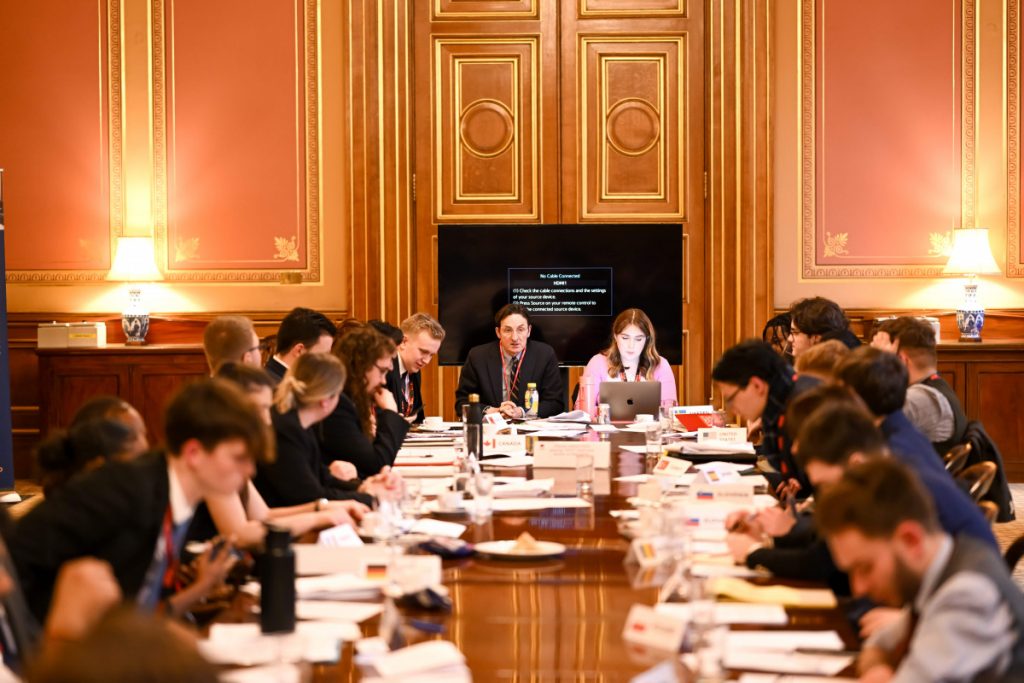
During the NATO event, Josh, Shahida and I won the ‘distinguished delegation award’. This reflected our collective success in all three of our delegations, meaning that while there were individuals deemed to have contributed more by their own merit, every member of out team performed at a higher overall standard.
I believe that our achievement could largely be attributed to our recognition of Canada’s role in the crisis and a calm willingness to work quietly and efficiently with the right nations to help facilitate increased cooperation with others. We had all read up on past Canadian involvement in NATO and knew that remaining on favourable terms with the British, French and American delegations would be invaluable. While I encountered greater cooperation with Scandinavia in the military committee, I still believe that it was the recognition of our national role and priority was the main factor that gained us the award.
I felt extremely proud of Josh, Shadidah and myself after our distinguished award was announced. I cannot overstate the quality of the support and enjoyment that I encountered throughout the build-up to the event. Josh and Shahidah are a credit to the department, as are Scott Keefer and Alina who helped get us on that winning podium.
As a final thought, the opportunity to spend a day in the foreign office was fascinating for all three of us. Many of the current geopolitical trends present in the world today are the result of decisions made in that building and those like it, resulting in an intriguing opportunity to experience how such diplomacy is conducted.
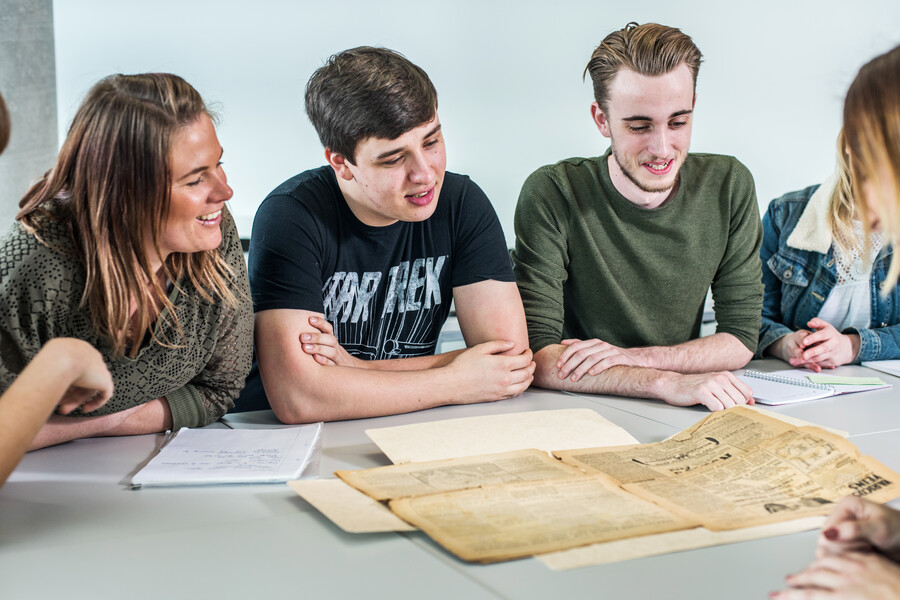
 My placement at the Royal Air Force Museum
My placement at the Royal Air Force Museum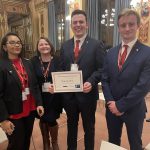 Winning an award at the BISA model NATO simulation event
Winning an award at the BISA model NATO simulation event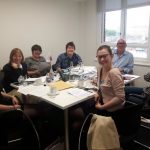 Welcome to Final Year Politics
Welcome to Final Year Politics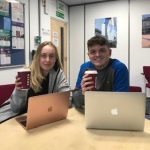 A day in the life of a BA (Hons) Politics student
A day in the life of a BA (Hons) Politics student

